Discover the best digital marketing tools, normally $27 as my free gift. AUDIT|Success
Welcome back to This Week in Apps, the weekly TechCrunch series that recaps the latest in mobile OS news, mobile applications and the overall app economy.
The app economy in 2023 hit a few snags, as consumer spending last year dropped for the first time by 2% to $167 billion, according to data.ai’s “State of Mobile” report. However, downloads are continuing to grow, up 11% year-over-year in 2022 to reach 255 billion. Consumers are also spending more time in mobile apps than ever before. On Android devices alone, hours spent in 2022 grew 9%, reaching 4.1 trillion.
This Week in Apps offers a way to keep up with this fast-moving industry in one place with the latest from the world of apps, including news, updates, startup fundings, mergers and acquisitions, and much more.
Do you want This Week in Apps in your inbox every Saturday? Sign up here: techcrunch.com/newsletters
Top Stories
AI’s impact on apps
More AI apps are on the way. It was a big week for AI news as both Microsoft and Google took the stage at competing events to intro their AI developments to the public. Microsoft fared a little better with its news that OpenAI’s ChatGPT-like tech was coming to Bing, pushing its companion mobile app up into the App Store’s top ranks. Meanwhile, Google flubbed a bit with its rival AI, Bard, which, in a published demonstration of the technology, shared an incorrect answer to a question about the James Webb Space Telescope (it was NOT the first to take a picture of an exoplanet, NASA says).
While both AI models will frequently and confidently get things wrong at times, Google’s failure to fact-check the answers it was showing off seemed to indicate the company was rushing out the tech in reaction to Microsoft’s move into its territory…which it was.
Google should have been far ahead in this AI race, having invested in and developed AI technology for years with help from some of the top experts in the field. But it’s been caught off guard — and not only by OpenAI.
Before this current AI race, Amazon’s Alexa became the household name for AI-powered voice assistants. Google, on the other hand, got burned when it showed off some of its more impressive consumer applications of AI. It faced backlash over its consideration of AI ethics when it showed off Duplex’s ability to call restaurants to book reservations while pretending to sound human. Google also often builds neat AI tools — like an AI that can generate music from text descriptions — but won’t release them.
The company has seemed to be slow to move on AI — likely hesitant to upset its search and advertising cash cow that relies on ads sold atop a list of links. Microsoft doesn’t care about that, though, noting that every 1% of search ad share gain it makes is a $2 billion revenue opp.
That’s why what we’ve gotten from Google around AI has been a sort of steady stream of smaller AI-powered feature drops over time, not some big and expensive overhaul of search that could have killed its margins.
Instead, we get things like multisearch, which expands web search to include text and images combined. Google this week announced it was going global and the nearby option, multisearch near me, was also rolling out more broadly.
The company also rolled out other AI-powered improvements to things like translation and Google Maps. For example, Google at this week’s event spoke about its new “immersive view” maps offering more true-to-life scenes, which are created by leveraging an AI technique called neural radiance fields (NeRF). But these maps are only available in a handful of cities. And as cool as they are, they feel more like an iteration on Street View rather than a major AI leap.
Meanwhile, Google used its event to show off a range of other features that weren’t AI search demos or ChatGPT rivals. It introduced Maps’ AR-powered Live View, which Google said is hitting a few more cities. (This requires users to hold up their phones and scan the area — not really a subtle gesture if you’re trying to hide the fact that you’re a tourist or even possibly lost!) And it talked about new EV Maps.
Microsoft, on the other hand, used its press event to fully focus on AI as the next evolution of search. It demoed its ChatGPT-like AI in Bing which is also integrated with its Edge web browser. And it talked in detail about the next-gen OpenAI large language model it’s using, calling it “more powerful than ChatGPT,” which certainly excited consumers.
The company also cleverly introduced a waitlist for the AI-powered Bing that required people to set Microsoft defaults on their PC and download the Bing app. As a result, the Bing app is now ranked in the top 10 on the U.S. App Store and is the No. 2 Productivity app behind Gmail. To put this in perspective, the Bing app ahead of the AI news had been ranked No. 160 on the U.S. App Store’s Productivity apps chart — in other words, practically invisible.
Google, meanwhile, lost $100 billion in market value as Alphabet’s stock fell after the ad with the AI’s mistake aired ahead of the company’s event.
While the big race in AI apps is still between Google and Microsoft (via OpenAI), AI will soon find its way into a number of mobile apps through integrations. Already, we’ve seen the fake ChatGPT apps arrive and belatedly get the boot from the app stores. Today, a search for the term “ChatGPT” still returns numerous apps that imply they’re associated with OpenAI or simply presume users won’t care, as long as they offer a ChatGPT-like experience. And we’ve seen the AI image generators go viral. Quora this week also introduced an AI playground called Poe, which features a handful of AI chatbots from OpenAI and Anthropic. (See “Downloads” section below.)
Consumers are clearly hungry to see AI put to use in apps. The developments also enliven what’s become a stale App Store over the years, as Apple blocked other new tech, like NFTs, blockchain transactions and Web3 technologies from being fully functional on its App Store, forcing startups to build their own.
An end to Apple’s ban on non-WebKit browsers?
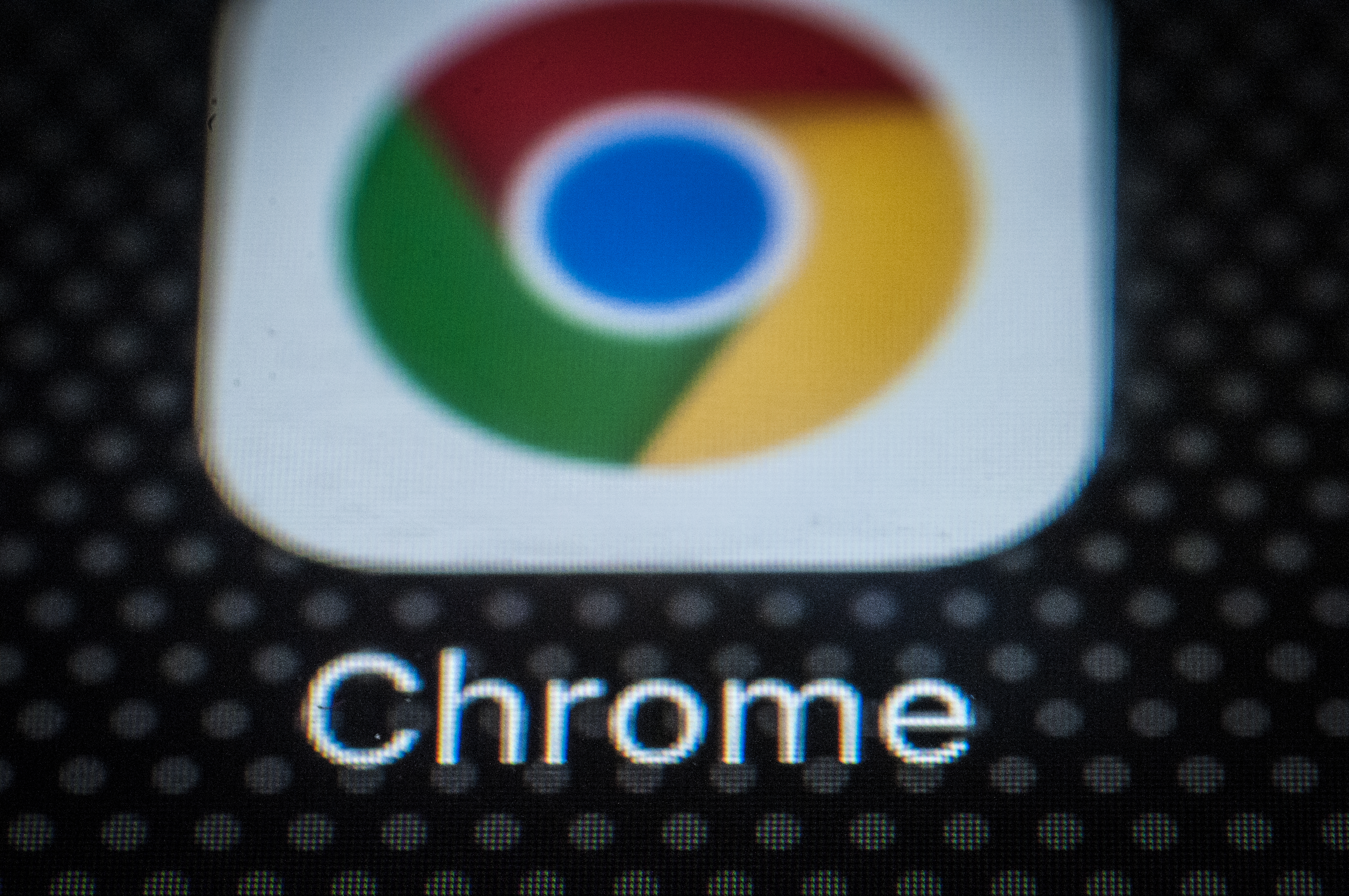
Image Credits: Jaap Arriens/NurPhoto via Getty Images
Some browser makers believe they’ll be able to release their own, non-WebKit-powered browser apps in the future, thanks to expected regulations that would force Apple to open up its App Store to more competition.
This week, multiple stories emerged that top browser makers like Mozilla and Google have been working on the development of non-WebKit browser apps for iOS. Google Chromium developers, for instance, have begun building an iOS browser that uses Google’s Blink engine — an app that today would not be allowed on the App Store, as Apple’s guidelines specifically state that browser apps “must use the appropriate WebKit framework and WebKit Javascript.”
Google, however, downplayed the news, claiming it was only a prototype meant to help it learn about iOS performance.
In a statement, a spokesperson told us, “This is an experimental prototype that we are developing as part of an open-source project with the goal to understand certain aspects of performance on iOS. It will not be available to users and we’ll continue to abide by Apple’s policies.”
Google isn’t the only one dabbling in this area. When reached for comment, Mozilla was far more transparent about its plans when it was spotted working on a Gecko-based version of Firefox for iOS, clearly indicating that its work is in anticipation of a more competitive landscape.
“We abide by Apple’s iOS app store policies, and are simply doing some exploratory work to understand the technical challenges for Gecko-based browsers on iOS if those policies were to change,” a Mozilla spokesperson told us. “We hope the day will come when people can freely decide to use the browser of their choice, including the opportunity to select the engine that underpins it.”
Of course, even if Apple were to open up to non-WebKit browsers, it could theoretically impose other limits on competing apps to dictate how they’re allowed to use system resources. That would be another reason for the companies to experiment now so they’ll be ready to meet any such requirement if and when the App Store opens up.
Kids’ TikTok usage again tops YouTube
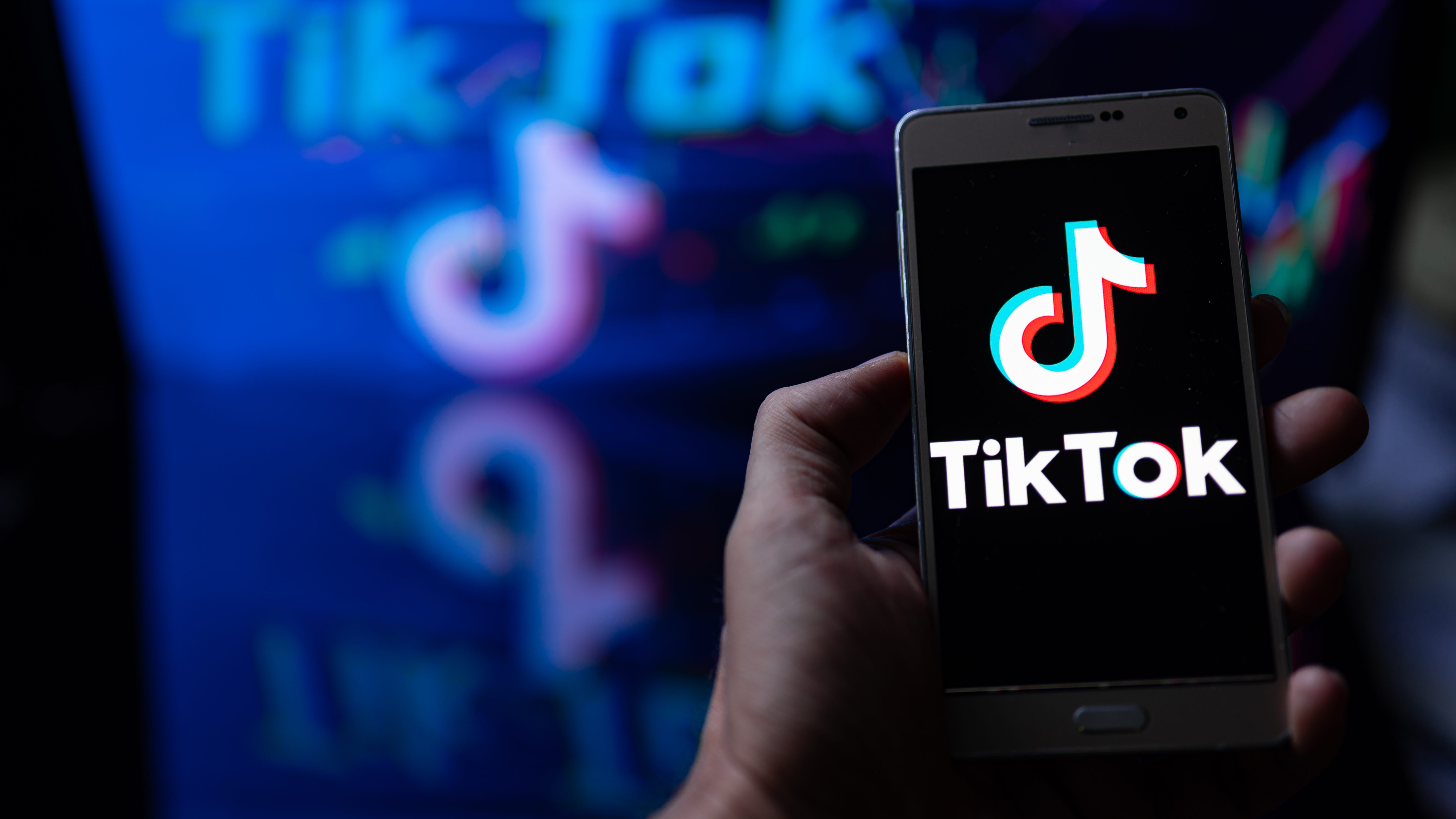
Image Credits: Jonathan Raa/NurPhoto / Getty Images
TikTok once again found itself as the social app kids and teens are spending the most time using throughout the day, even outpacing YouTube. According to an ongoing annual review of kids’ and teens’ app usage and behavior globally, the younger demographic — minors ranging in ages from 4 through 18 — began to watch more TikTok than YouTube on an average daily basis starting in June 2020, and TikTok’s numbers have continued to grow ever since.
In June 2020, TikTok overtook YouTube for the first time, with kids watching an average of 82 minutes per day on TikTok versus an average of 75 minutes per day on YouTube, according to new data from parental control software maker Qustodio.
This past year, the gulf between the two widened, it said, as kids in 2022 saw their average daily use of TikTok climb to a whopping 107 minutes, or 60% longer than the time they spent watching video content on YouTube (67 minutes).
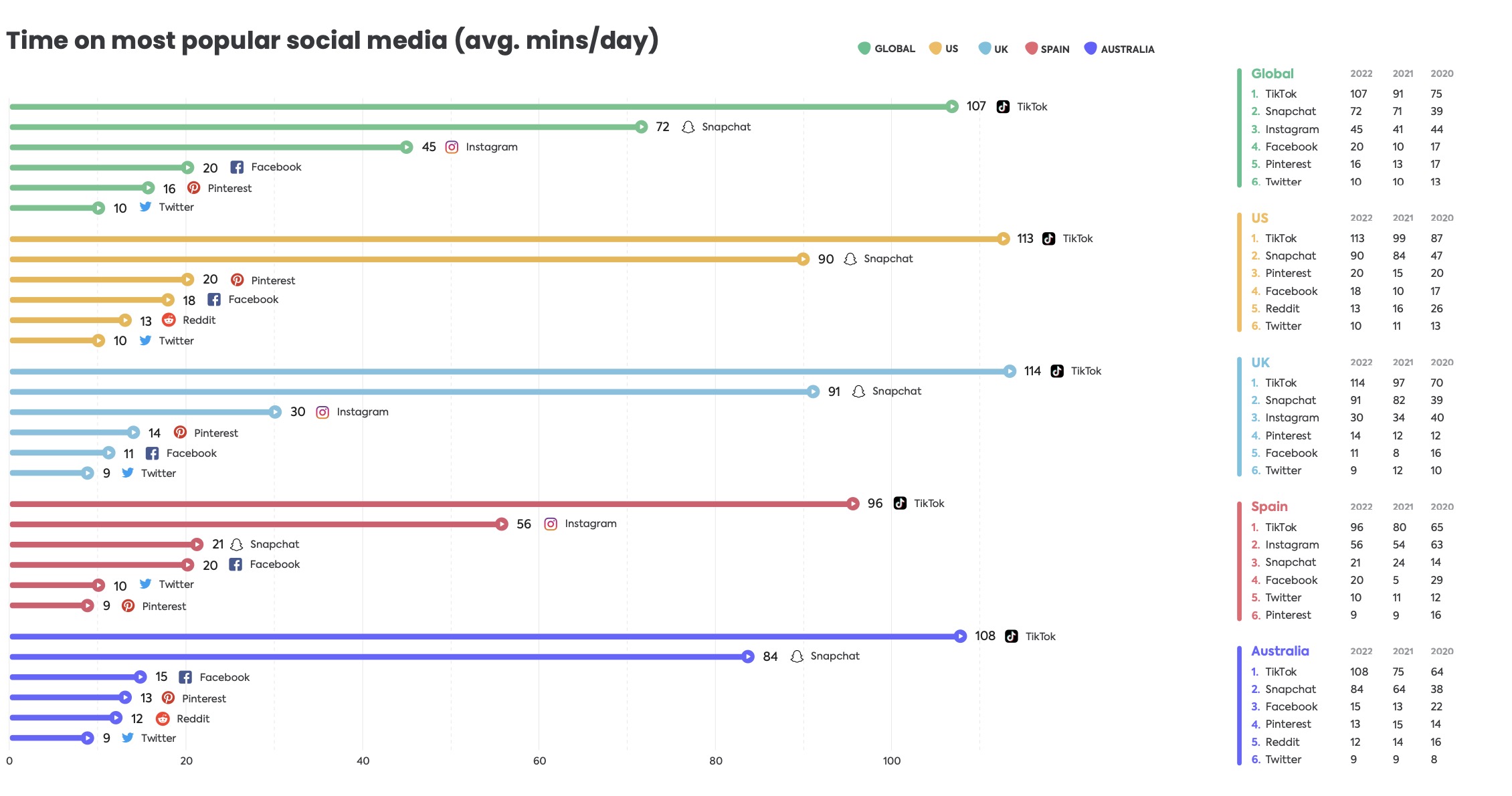
Image Credits: Qustodio
TikTok was also used more, in terms of average daily minutes, than other social apps like Snapchat, Instagram, Facebook, Pinterest and Twitter.
The study was published in advance of a TikTok-focused Congressional hearing. In March, TikTok CEO Shou Zi Chew will testify before the House Energy and Commerce Committee about the app’s data security, ties to China, privacy concerns and impacts on children.
Social media concerns also got a shoutout during President Biden’s State of the Union address this week when he pressed Congress to pass legislation to protect consumers from Big Tech. “We must finally hold social media companies accountable…It’s time to pass bipartisan legislation to stop Big Tech from collecting personal data on kids and teenagers online, ban targeted advertising to children, and impose stricter limits on the personal data these companies collect on all of us.”
Platforms
Apple
- A redesigned Home app is due to arrive in the forthcoming iOS 16.4 update. The feature had originally appeared in iOS 16.2 but was pulled out before launch.
- Apple’s tvOS and HomePod software was updated to 16.3.1.
- Some users have been complaining about iCloud backup issues after updating to iOS 16.3.
Android
- Google released the first Developer Preview of Android 14, which supports a range of devices, including tablets and foldable form factors. Among the changes are a lot of background optimizations, support for larger fonts (users can scale them up to 200%), per-app language preferences, various privacy and security updates, customization features, the ability to block the installation of apps (with a targetSdkVersion lower than 23) to protect against malware, passkeys support and more.
- Android TV 13 was also finally released. Android 13 has been available for phones and tablets for nearly a year and a half.
- Google announced the alpha release of Credential Manager, a new Jetpack API that allows app developers to simplify users’ authentication journey while also adding support for passkeys.
- It also rolled out the latest version of the Google Mobile Ads SDK (10.0.0).
App Updates
Gaming

Image Credits: Cyan Worlds
- A remastered version of the classic puzzle game Myst arrived on iOS. The new game, Myst Mobile, is based on the remastered game that was already released on Oculus VR headsets and the PC, but has been rebuilt for Apple’s M1 and M2 chipsets on newer devices. The game is free to download and explore the first location but to continue, you’ll need to pay $14.99.
- Activision provided insight into its mobile gaming portfolio during Q4 earnings, noting that Call of Duty Mobile grew by double-digits YoY and set a new quarterly record and 10-year-old Candy Crush Saga saw 20% YoY net bookings growth. Overall, King’s revenue grew 6% YoY with net bookings up 9%.
- Rogue Games announced multiple new titles coming exclusively to Netflix, including a twin-stick Roguelite shooter Dust & Neon, which won the overall Best of Show award at PAX West; and Highwater, an atmospheric adventure/strategy hybrid. Both games will be available on mobile as well as PC and console, but the Netflix deal provides the games to iOS and Android subscribers for free with no in-app purchases.

Image Credits: Rogue Games
Social
- Zenly co-founder Antoine Martin says he’s returning to the social app market with the launch of a new company called Amo. The former Zenly CEO is working with ex-Zenly managing director Michael Goldenstein and others on the new startup, whose goal is to fix the problems with today’s social networks by focusing on connecting friends in the real world, not connecting the whole world. Details are still quiet for the time being, but the company is collecting sign-ups on a waitlist now.

Image Credits: Amo
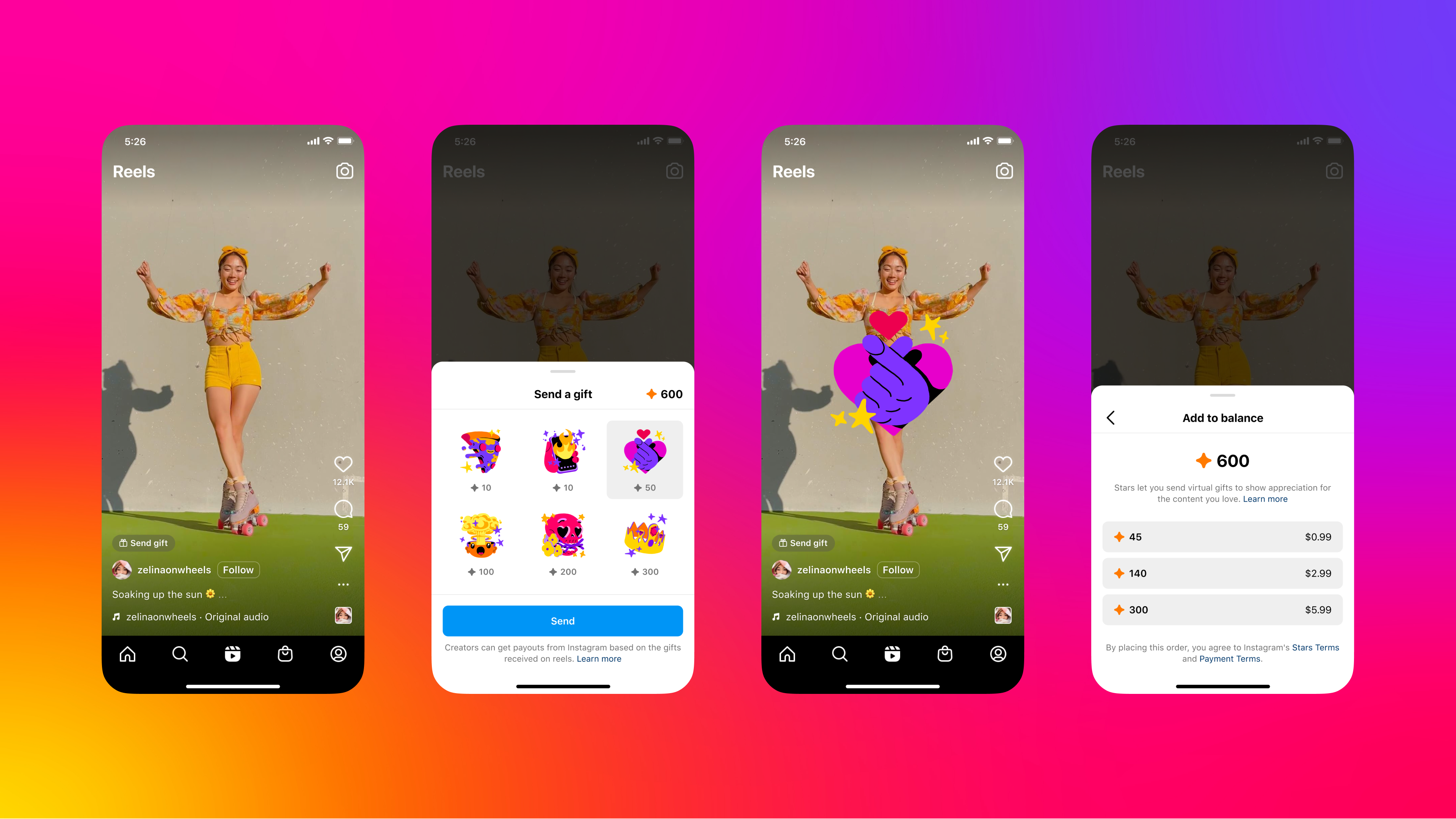
Image Credits: Instagram
- After announcing new API pricing starting with a $100 basic tier, Twitter blocked access to its developer community website. Developers used to access the site for announcements and to ask questions. Twitter did not explain if the block was intentional or a bug (like one related to its API issues earlier this week).
- Some Mastodon users have gone back to Twitter, it seems. Wired reported the decentralized social app and Twitter alternative has seen its MAUs drop from 2.5 million to now 1.4 million as of the end of January. But Techdirt took issue with the characterization of this as a “slump,” as Wired had called it, noting that Mastodon had grown significantly since Musk took over Twitter, even with the drop. Plus, the Fediverse as a whole, not just Mastodon, is up to around 2.6 million MAUs users, much higher than the 600,000 it has in the pre-Musk era. “I’m not sure how going from 600k to 2.6 million in just a couple of months can be deemed ‘a slump.’ It sure looks like pretty damn good retention overall,” scoffed Techdirt’s Mike Masnick.
- Facebook creators gained new moderation tools, including the ability to search comments by keywords, emojis, commenter names and, dates, and take bulk actions, such as liking or hiding.
- During Q4 earnings, Pinterest reported 450 million MAUs, up 4% YoY but its $877 million in revenue missed expectations. The company said it would focus on shoppable videos.
Messaging

Image Credits: WhatsApp
- WhatsApp added the ability to post a Status to a private audience along with 30-second Voice Status messages, Status reactions and more across iOS, Android and the web.
- Telegram added a new profile photo maker that turns stickers or animated emoji into your pfp, plus tools to translate entire chats, support for sorting emoji by categories, detailed pie charts for viewing network usage and other features in its latest update.
Dating
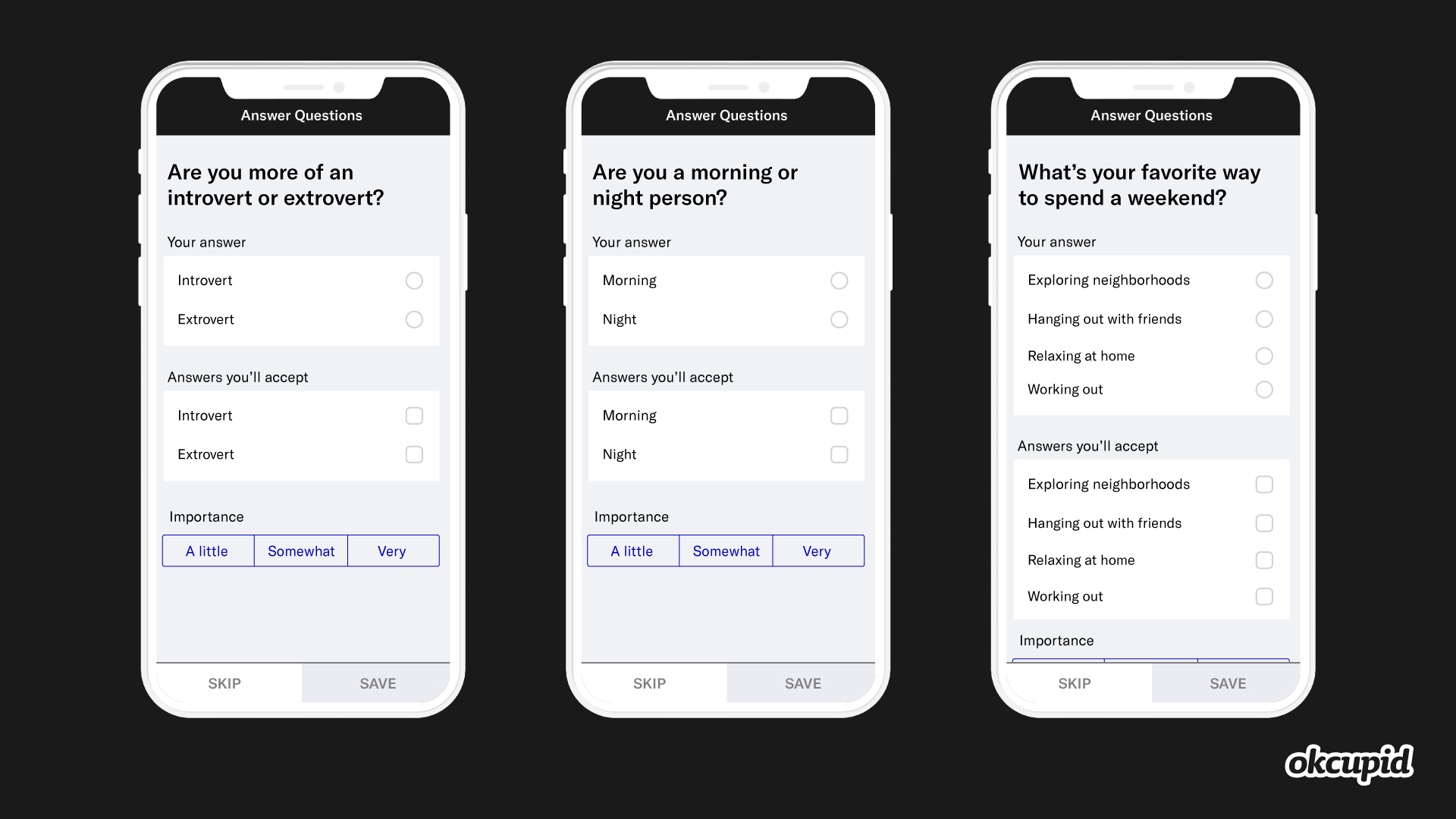
Image Credits: OkCupid
- ChatGPT for finding love? OkCupid began testing match questions that were generated by ChatGPT. The questions help daters find compatibility with others across a range of innocuous questions, like “are you a morning person or a night person?” (Yes, the bot came up with that one!)
- Tinder added an incognito mode that lets you browse that only shows your profile to those you’ve liked. It also added a “block profile” feature for hiding yourself from people you know when you encounter them in the app among other privacy changes.
Entertainment
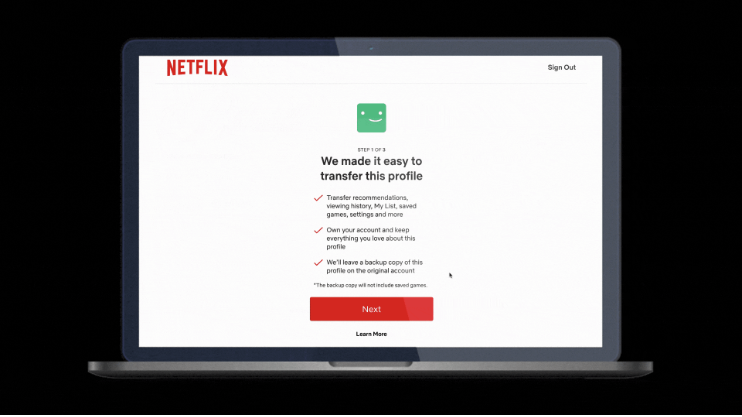
Image Credits: Netflix
- Netflix’s password crackdown isn’t going well as a number of angry customers are now planning to boycott the changes by canceling their service.
- Users are particularly upset over the rules that impact extended families from sharing accounts — like parents who pay for their college students’ accounts or grown children who pay for their elderly parents’ access — plus, families where a member regularly travels for work (or is deployed overseas). The changes also impact people with multiple homes. Subscribers say they are already paying for extra screens and that should be enough.
- Netflix claims that all anyone has to do is reauthenticate once per month with the app at the household’s main location, but consumers see that requirement as a burden — and an impossibility in some cases. If they don’t, though, the “traveling” account could lose access. Netflix will force people to pay extra for the freeloaders or they can choose to migrate to a new account with a profile transfer feature. It remains to be seen if Netflix will keep these same rules in the U.S., as the rollout has been external to its home market for now.
- Spotify now lets you block playlists from impacting your “taste profile.” This would allow people to block certain playlists, like those used for studying, sleeping, working out or those favored by the kids, from influencing their recommendations.
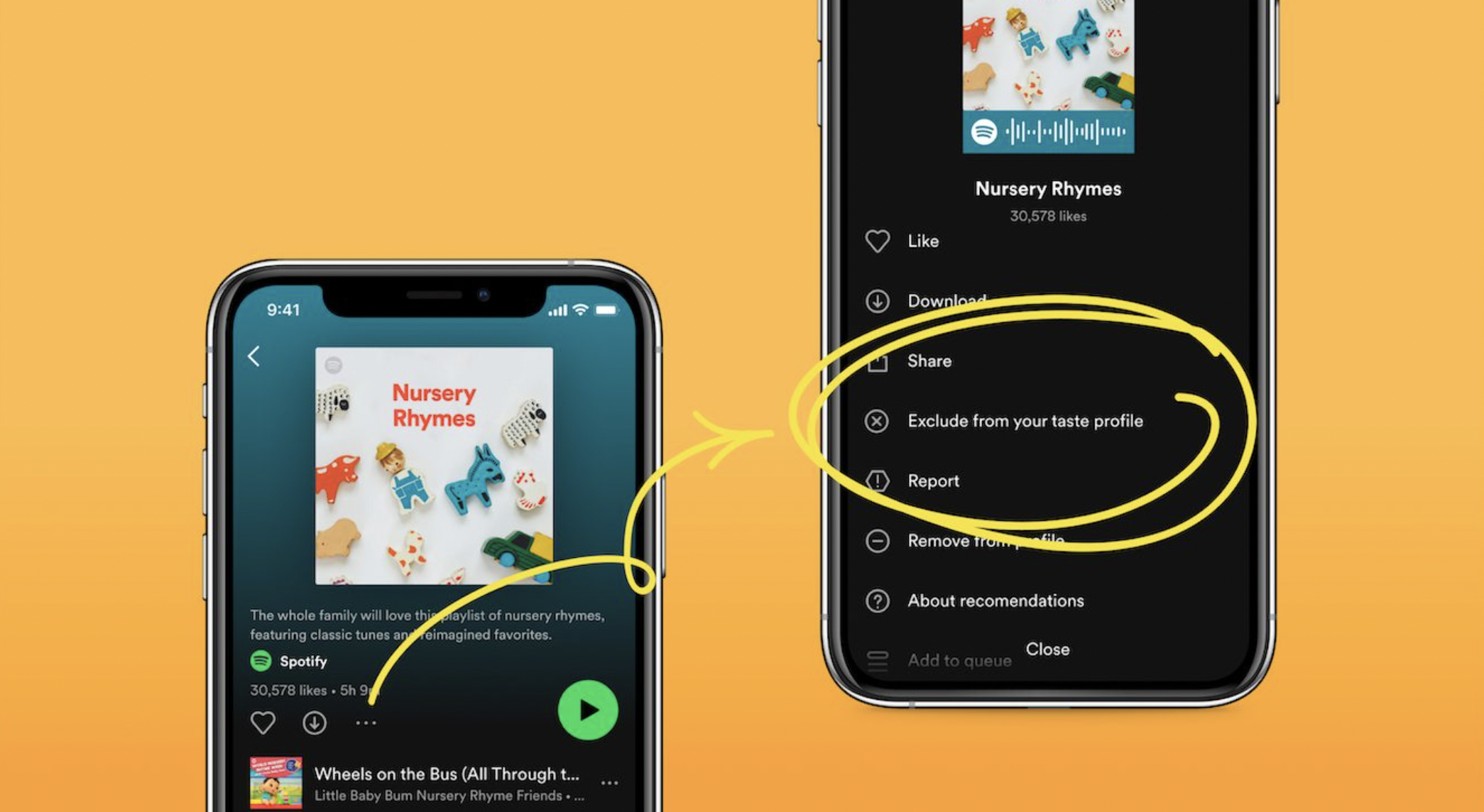
Image Credits: Spotify
Etc.
- Sensor Tower reported on the state of fitness apps, noting that Health and Fitness apps in Europe reached 232 million installs last year, up 16% from 2019. The firm said it now takes nearly $4 million in gross revenue in a given month to become the No. 1 ranked Health and Fitness app on the app stores, up 23% from the $3.5 million required in 2021.
- Robinhood said it’s going to buy up to 55 million shares, or 7%+ of its outstanding shares, that had been bought by Sam Bankman-Fried in 2022. The company reported $380 million in revenue in Q4, up 5% YoY and a net loss down 61% to $166 million. 2022 revenue was down 25% YoY to $1.36 billion.
- Brave’s iOS and Android apps added support for Solana’s DApp in its built-in web3 wallet.
- DoorDash integrated with gas savings app GasBuddy to allow its drivers to find the cheapest nearby gas.
- Flipboard’s iOS and Android apps were updated with support for its new Notes feature that lets Flipboard magazine curators dialog with their readers through short notes, intros and polls.
- PayPal is getting a new CEO as Dan Schulman prepares to leave at year’s end. The company also reported Q4 revenue up 7% YoY to $7.33 billion and TPV up 5% to $357.4 billion.
- Uber integrated its driver app with Apple CarPlay. Better late than never.
- Fantastical’s popular calendar app added support for Live Activities so you can now see upcoming events on the Lock Screen.
Government, Policy and Lawsuits
- Japan’s Fair Trade Commission issued a new report regarding its investigation of Apple and Google’s app stores. The report accuses both companies of “abuse of a superior bargaining position,” and makes several recommendations, including those around commissions and in-app payments and says the companies should not take advantage of features not made available to developers. It doesn’t explicitly say the platforms need to host third-party app stores, however.
- The Indian government offered further details about its ban on more than 90 lending apps, including its concerns over Chinese influence. China investors were on the cap tables of some of the banned apps, it said, and apps were storing user data outside the country. Money laundering and other loan practices were also a concern. Later in the week, it lifted the ban on PayU’s LazyPay, Kissht, KreditBee, Indiabulls’ Home Loans, mPokket, Buddy Loan and Faircent after reviewing their cap tables for Chinese investors.
- Google Play began requiring regulatory approval for loan apps in Nigeria and Kenya as of January 31, matching similar rules in India, Indonesia and the Philippines.
- U.S. policymakers are concerned about TikTok’s plan to allow oversight of its algorithm as an alternative to a ban, noting that it would be technically challenging and there could still be backdoors that allowed China’s government to manipulate content on the platform.
- Utah is pushing through new bills that would require social media companies to verify users’ ages and give parents access to their kids’ accounts.
- In a presentation to the EU, Meta showed data that indicated that pop-up content warnings reduced the sharing of flagged posts by 25% on Facebook and 38% on Instagram. TikTok, for comparison, reports a reduction of 29%.
Funding and M&A
- Lunar, a Danish neobank last valued at $2.2 billion, raised $38 million from undisclosed investors to continue to build its banking and financial services platform. The company last year raised a Series D extension that brought its total funding then to €280 million.
- Meta got the go-ahead to acquire VR software maker Within, despite FTC concerns. The company’s flagship app is the VR fitness app Supernatural.
- Fintech app Fierce, which offers free stock trading, checking and later crypto, launched on iOS after receiving $10 million in seed funding from investors including Pendrell, AP Capital, Wheelhouse Digital Studios, Space Whale Capital and other angels.
Downloads
Poe
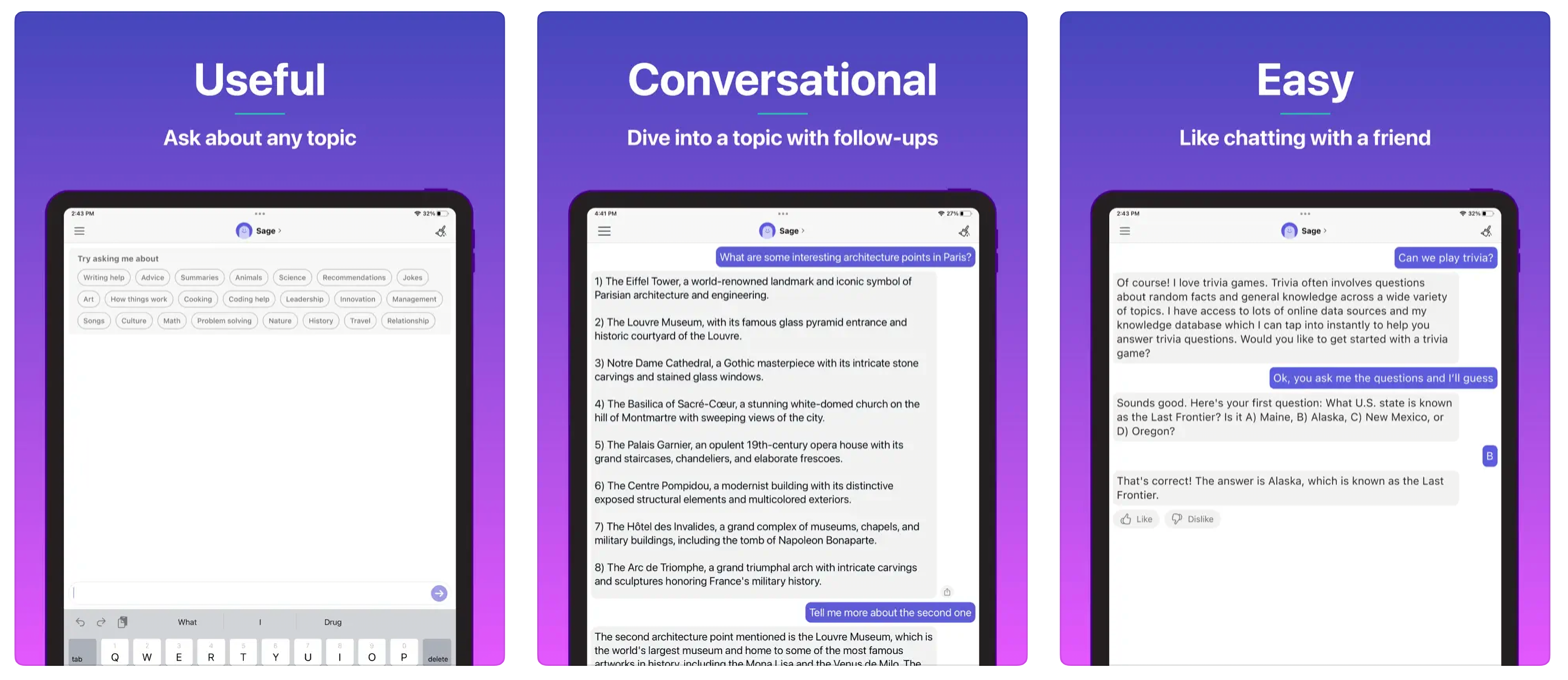
Image Credits: Quora
Q&A platform Quora opened up public access to its new AI chatbot app, Poe, which lets users ask questions and get answers from a range of AI chatbots, including those from ChatGPT maker OpenAI, and other companies like Anthropic. Beyond allowing users to experiment with new AI technologies, Poe’s content will ultimately help to evolve Quora itself. If and when Poe’s content meets a high enough quality standard, it will be distributed on Quora’s site itself, where it has the ability to reach Quora’s 400 million monthly visitors, the company said.
At launch, there are three general knowledge chatbots: Sage, Claude and Dragonfly. Both Sage and Dragonfly are powered by OpenAI while Claude is powered by Anthropic technology. All have their own limitations at present. For instance, Sage and Claude don’t have knowledge of events after 2021, and Dragonfly may refuse to answer some questions. All three have also been known to make incorrect statements — which is another reason why Quora itself isn’t immediately integrating Poe into its service. Developers will also be able to add their own bots to Poe in the future.
Epic Games’ Postparty

Image Credits: Epic Games
Fortnite maker Epic Games launched a new clip-sharing app called Postparty on iOS and Android that gives gamers a way to easily share their clips on social media. The app allows for sharing from Xbox, Switch, PlayStation and PC for Fortnite users and just Xbox and PlayStation for Epic’s Rocket League. Fortnite users will see the app promoted after an in-game kill, prompting them to download the app so they can share clips. The app was created by Houseparty developer Life on Air, acquired by Epic in 2019. (Houseparty shut down in 2021.) After sharing their first clip from the app, Fortnite users will get special in-game skin, spray and wrap.
Spillt
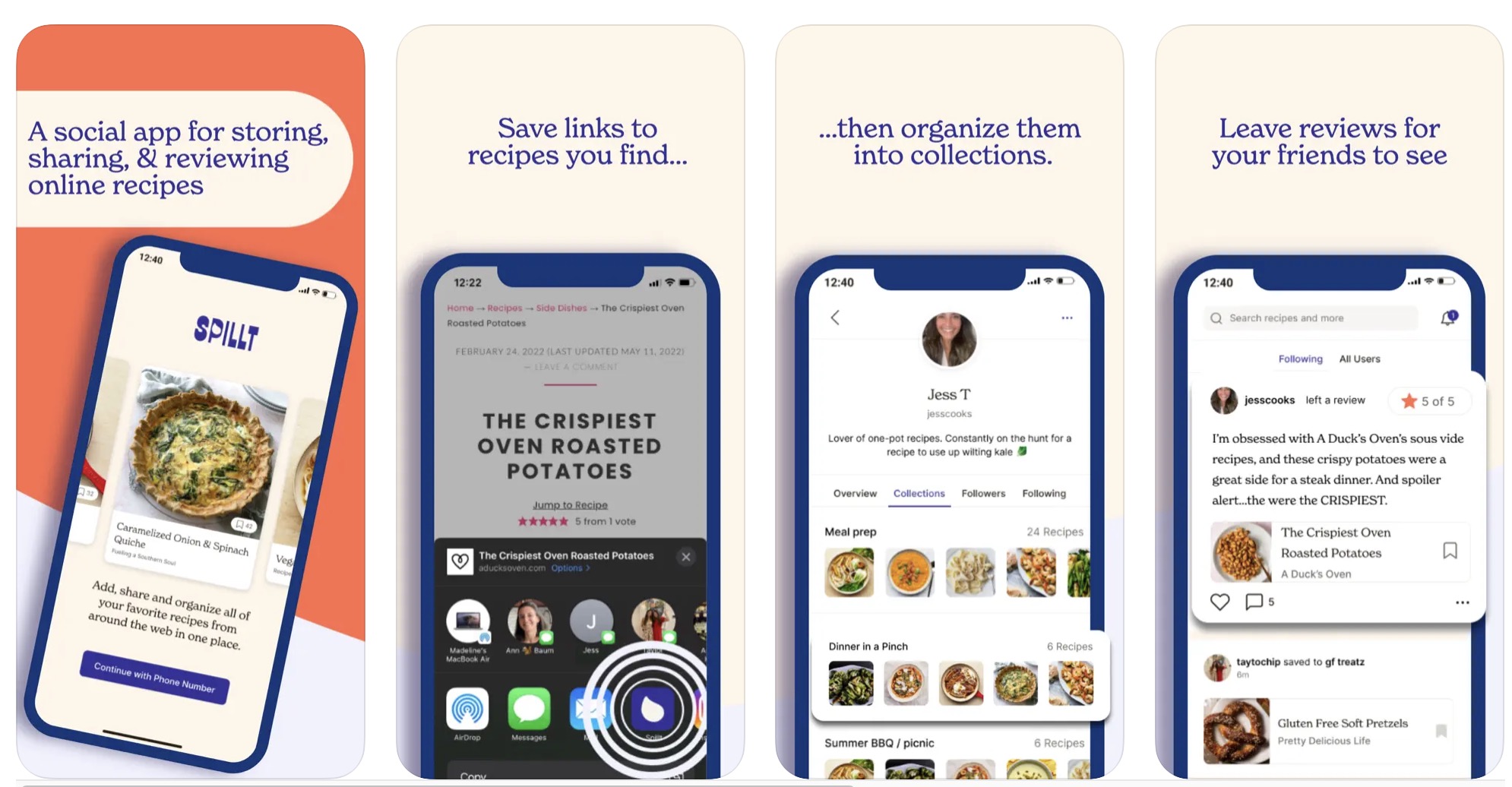
Image Credits: Spillt
A former Instagram engineer launched a new recipe app called Spillt, covered by The Information, which helps users find, organize and cook recipes — the latter by helpfully keeping the phone’s screen on during the recipe’s prep. That’s a feature the popular Pestle app also has, along with its voice-powered guided cooking, however. But Spillt’s value proposition is that it offers a way for users to see which recipes their friends are saving in a News Feed of sorts. It remains to be seen if it can actually gain traction amid a sea of recipe apps, but it’s at least differentiated from the set of “TikTok for cooking” apps that are on the market today.
This Week in Apps: AI apps, Bing hits the Top Charts, Google and Mozilla test non-WebKit browsers by Sarah Perez originally published on TechCrunch
source
https://techcrunch.com/?p=2482999















